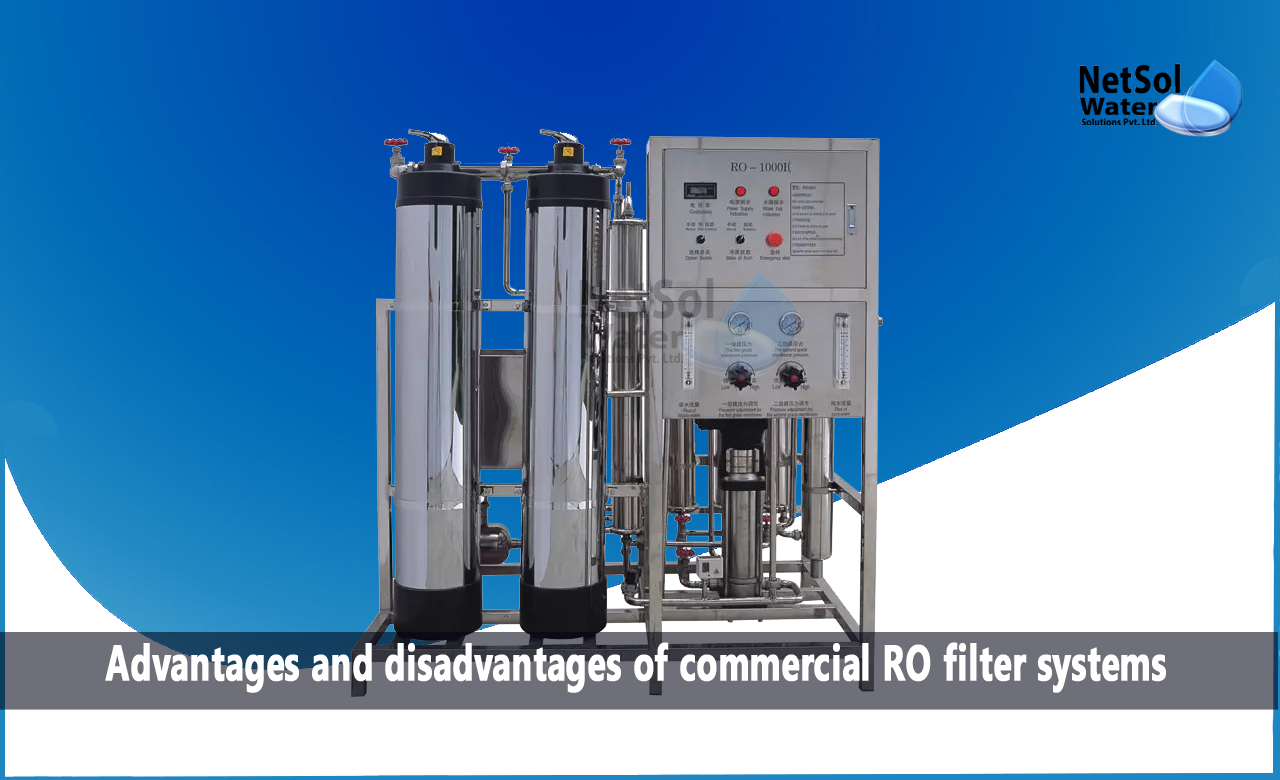What are the Advantages and disadvantages of commercial RO systems?
In recent years, commercial reverse osmosis (RO) filter systems have become increasingly popular in many industries. These systems are used to purify water and remove impurities, such as minerals, salts, and other contaminants. While these systems offer a variety of advantages, they also come with some drawbacks.
In this blog, we will explore the advantages and disadvantages of commercial RO filter systems.
Advantages of commercial RO filter systems:
- High-quality water: One of the most significant advantages of commercial RO filter systems is that they provide high-quality water. These systems can remove up to 99% of impurities, making them ideal for use in industries that require high-purity water, such as pharmaceuticals, food and beverage, and electronics.
- Cost-effective: While the initial cost of installing a commercial RO filter system can be high, the long-term cost savings can be significant. These systems require less maintenance than other types of water filtration systems and can provide a high volume of purified water, making them a cost-effective option.
- Environmentally friendly: Commercial RO filter systems are environmentally friendly because they do not require the use of chemicals or energy-intensive processes to purify water. They also produce less waste than other types of water filtration systems, making them a more sustainable option.
- Easy to operate: Commercial RO filter systems are relatively easy to operate, making them a popular choice for businesses and industries that require large amounts of purified water. These systems require minimal training and can be operated by anyone with basic knowledge of water treatment systems.
Disadvantages of commercial RO filter systems:
- Waste water: One of the biggest disadvantages of commercial RO filter systems is that they produce a large amount of waste water. For every gallon of purified water produced, these systems can produce anywhere from 2-4 gallons of waste water, which can be costly to dispose of.
- Maintenance: While commercial RO filter systems require less maintenance than other types of water filtration systems, they still require regular maintenance to ensure that they are working correctly. This can include replacing filters and membranes, cleaning the system, and checking for leaks.
- Initial cost: The initial cost of installing a commercial RO filter system can be significant, making it a less attractive option for small businesses or industries with limited budgets. Additionally, the cost of replacing filters and membranes can also add up over time.
- Energy consumption: Commercial RO filter systems require a significant amount of energy to operate, making them less energy-efficient than other types of water filtration systems. This can result in higher energy bills and a larger carbon footprint.
Conclusion:
In conclusion, commercial RO filter systems offer a variety of advantages, such as high-quality water, cost-effectiveness, environmental friendliness, and ease of operation. However, they also come with some disadvantages, such as waste water production, maintenance requirements, high initial cost, and high energy consumption. Ultimately, businesses and industries must weigh the pros and cons of commercial RO filter systems to determine if they are the right choice for their needs.
For any other support, inquiries, or product purchases, call on +91-9650608473 or email at enquiry@netsolwater.com



